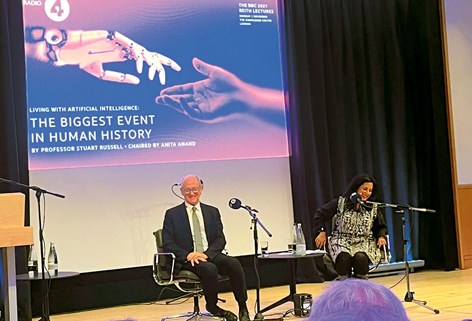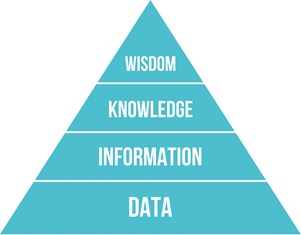Helen Cullington provides the clinician’s perspective on the challenges faced in building artificial intelligence into cochlear implant clinics. She highlights the importance of including the clinician with their wisdom and experience to help make sense of the patterns of data. This symbiosis of the clinician and the technology will streamline the service delivery and optimise the patient experience.
Cochlear implantation is a great solution for babies, children and adults with severe-to-profound hearing loss, providing access to sound in a way that has never been possible before. The human brain then gets on with using the new auditory information to restore hearing functions and enhance the listener’s quality of life.
Currently, cochlear implantation is a lengthy and labour-intensive process – requiring extensive investment from the patient and their family and a highly-qualified multidisciplinary team. But how much intervention is actually required from the cochlear implant team in order to optimise the end result? How can we best use the decades of knowledge, experience and wisdom accrued in cochlear implant teams, combined with technological and data science advances?
The cochlear implant process involves five stages: preimplant assessment (relying on appropriate and timely referral), surgery, device mapping/programming, rehabilitation and ongoing equipment maintenance [1]. Before the COVID-19 pandemic, most of these were done in person – usually relying on the patient making multiple visits to a specialist cochlear implant centre. This may cause expense, inconvenience and family disruption, and may preclude those who are unable to make long journeys for whatever reason. Doing many of these processes remotely is now a priority in order to avoid patients travelling to hospital and to make our services more efficient and scalable.
“Most people have a smart phone with highly sophisticated voice recognition and communication tools, allowing remote rehabilitation to ensure the patient gets maximum benefit from their device”
Providing remote care is technologically easy: we’ve been able to remotely access someone else’s computer for decades, making even remote mapping technically easy. Most people have a smart phone with highly sophisticated voice recognition and communication tools, allowing remote rehabilitation to ensure the patient gets maximum benefit from their device. But we always need to be mindful of equitable access to care - are those unable to travel to a cochlear implant centre also those who are less likely to be able to use a technological remote solution? Are we further increasing health inequalities? This is where the wise cochlear implant clinician can make decisions with the patient about the best care pathway.

BBC 2021 Reith Lectures. Stuart Russell and Anita Anand.
I recently went to a BBC Reith Lecture by Stuart Russell about humanity and artificial intelligence (AI). It made me see that we are now at a crucial exciting junction where decisions need to be made about AI and how it can benefit the field of cochlear implantation. AI can be seen as the process of building machines that do the right thing, that act in ways that can be expected to achieve their objectives [2]. However, we, as the cochlear implant clinicians, are the only ones who possess the wisdom to define what those objectives are. Consider the Data-Information-Knowledge-Wisdom hierarchy – this is a pyramid for a reason! Data are abundant … wisdom is rare.

The Data-Information-Knowledge-Wisdom hierarchy.
(https://en.wikipedia.org/wiki/DIKW_pyramid).
In the field of cochlear implants, data are being collected all the time: from the frequency of patient contacts to the clinic to continuous monitoring of electrode impedances. By themselves, these data are useless. The data need to be selected, combined, and organised to present signals and warnings to the patient and clinician. This information is then given meaning and becomes knowledge – including the synthesis of many sources from the patient’s medical history to the current literature. The final stage is that the knowledge is given insight and understanding to enable decision making: for example, a clinician may use their knowledge and wisdom to decide to schedule an integrity test for a patient.
“Data are abundant … wisdom is rare”
As we move forward in applying AI to cochlear implant care, we need to talk about where the wise clinician best fits in – applying human values with the ultimate goal of enhancing patient quality of life. How can we work side by side with AI, while retaining the wisdom ourselves? This is precisely the time for us to talk and decide what machines can do, and what only wise clinicians can do. Let’s not watch this process happening; let’s get involved.
References
1. British Cochlear Implant Group Quality Standards (2018)
https://www.bcig.org.uk/wp-content/
uploads/2021/03/QS-update-2018-WORD-final-v2.pdf
2. Russell S. Why we need to rethink the purpose of AI: A conversation with Stuart Russell. McKinsey Analytics 2020. www.mckinsey.com/business-functions/
mckinsey-analytics/our-insights/why
-we-need-to-rethink-the-purpose-of-ai
-a-conversation-with-stuart-russell
Links last accessed November 2021.






